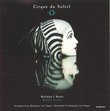| All Artists: Anton Bruckner, Herbert von Karajan, Berlin Philharmonic Orchestra Title: Bruckner: 9 Symphonies [Box Set] Members Wishing: 0 Total Copies: 0 Label: Dg Imports Original Release Date: 1/1/2008 Re-Release Date: 11/18/2008 Album Type: Box set, Import Genre: Classical Style: Symphonies Number of Discs: 9 SwapaCD Credits: 9 UPC: 028947775805 |
Search - Anton Bruckner, Herbert von Karajan, Berlin Philharmonic Orchestra :: Bruckner: 9 Symphonies [Box Set]
![Bruckner: 9 Symphonies [Box Set]](https://nationalbookswap.com/cd//l/95/2795/6182795.jpg) | Anton Bruckner, Herbert von Karajan, Berlin Philharmonic Orchestra Bruckner: 9 Symphonies [Box Set] Genre: Classical |
Larger Image |
CD DetailsSimilarly Requested CDs
|
CD ReviewsBudget Reissue of the Classic Set of All Time... S�bastien Melmoth | H�tel d'Alsace, PARIS | 11/20/2008 (5 out of 5 stars) ". Originally recorded and issued on LP in the mid-1970s, Karajan/BPO's Bruckner cycle has never been surpassed in terms of vision of realization and excellence of execution. . Dr. Robert Simpson says, "Bruckner must always be approached with a fresh mind. His kind of originality, the giant scale of his conceptions, the wide sweep of his thought demand the hearer be free of preconceptions. Each Bruckner symphony differs much from its fellows: each has its own way of treating its tonalities, its balancing of mass and void. Bruckner wields whole paragraphs as themes in well defined sections, like the plain divisions of churches. Indeed, the music is written in terms of cathedral-like acoustics, and its periodic pauses are most effective in a building that can create awesome dying echoes. The Ninth Symphony is perhaps the most original and far-reaching of his works. The vast Misterioso is based on a clear plan of statement and expanded counterstatement with a great coda added. The Scherzo is harmonically perhaps the boldest essay by anyone to that date (1894). Its fierceness has a fiendish quality expressed with a sublime detachment; it is thus the more terrifying. The Trio, icily compelling , slips past at a much faster pace. The Adagio is undoubtedly a deep meditation. Its summit is a tremendous dissonance. Finally there is a serene coda that shows Bruckner's power in reverse action. His greatest skill lies in his ability to erect towering climaxes: here the tension is slowly eased until the end is as still and broad as a cloudless sky. The Adagio, like the slow movement of Schubert's b-minor Symphony, makes a moving ending." . Anton Bruckner: Symphonies Nos. 1 & 5 - Herbert von Karajan / Berlin Philharmonic Anton Bruckner: Symphony No. 2 - Herbert von Karajan / Berlin Philharmonic Anton Bruckner: Symphony No. 3 - Herbert von Karajan / Berlin Philharmonic Bruckner: Symphony No.4 in E flat major "Romantic" Bruckner: Symphony No. 6 Anton Bruckner: Symphony No. 7 - Herbert von Karajan / Berlin Philharmonic Bruckner: Symphony No. 8 / Wagner: Siegfried-Idyll Bruckner: Symphony No. 8; Overtures by Mendelssohn, Nicolai, Wagner & Weber Bruckner: Symphony No. 9 Anton Bruckner: Symphony No. 9 - Herbert von Karajan / Berlin Philharmonic . [Note: this is a discounted-budget reissue: 9 discs in paper sleeves in cardboard box (would recommend transfer of discs to micro-jewel boxes available from office supply stores). Mix same as 1989 issue with breaks of Symphonies Nos. 5 & 8 on two discs coupled with Nos. 1 & 2 respectively--not "ideal," but waddayagonnado? Sound is wondrously spatial, clear, etc. Original set issued at 3x-$$: this is a super deal of the ne plus ultra Bruckner realizations.] ." The greatest set of the complete Bruckner symphonies Mogulmeister | Boston, MA | 04/23/2009 (5 out of 5 stars) "This is the budget re-release of the greatest set of the complete Bruckner symphonies ever recorded. I paid more than twice this amount when I purchased the set back in the early 1990s, but even at that it has been worth every penny. If you are interested in a complete Bruckner set, do yourself a favor and without hesitation throw this into your shopping cart ASAP. I have posted an earlier review of the original set, but to summarize, Karajan is the greatest Bruckner conductor of all time, to my ears. I am in total awe of what Karajan achieved with this set, and I can't think of any other recorded legacy that is more important. Every single symphony except for #1 receives a compelling performance, and symphonies 2,4,5,6,7,8, and 9 receive *exceptional* performances (#3 is a fine enough performance, but Karajan uses the highly edited 3rd version, and I prefer the unedited first version in Tintner's exceptional recording). Karajan's interpretations are magnificent and go right to the soul of this deeply moving music (and without disruptive eccentricities). And the playing of the Berlin Philharmonic has to be heard to be believed--the balance, the tone, the beautiful sonorities--it's hard to not think that this represents their finest hour(s), so to speak. The Berlin Philharmonic's playing in this set is the greatest orchestral playing I have ever heard--in any works. What an achievement for Karajan and the orchestra, and what a great gift to all of us, to have this amazing set that goes right to the soul of this deeply moving music. There are some criticisms of the sound, mostly justified (except for #5 and #9, whose sound I would not touch). The good news is that because the performances are so compelling and the orchestral playing so stunning, not only does your ear quickly adjust, but before long you are never even questioning that the sound is an issue. Would this set have benefited from a remastering? Without doubt. Will the sound as it is prevent you from treasuring these recordings? Absolutely not. In the end, the final bow must go to the master, Anton Bruckner. It is almost inconceivable to me that any human being could have conceived of, let alone successfully executed, the creative ideas that Bruckner puts forward and then successfully resolves in his symphonies (particularly #2,4,5,7, and 9). Hans-Hubert Schonzeler said it better than anyone ever will: "Bruckner's symphonies are in reality one gigantic arch which start on Earth amidst suffering humanity, travel up to the Heavens to the very throne of grace, and return with a message of peace." I hope this music provides you comfort, wisdom, beauty, and joy, as it has me." ...AND I'M NOT GENERALLY A FAN OF VON KARAJAN G. Engler | The Frigid Northeast | 02/21/2010 (5 out of 5 stars) "A previous reviewer suggests purchasing this set as part of the integral Karajan Symphony Edition Karajan: Symphony Edition, and frankly if I was starting to build a classical music collection I would agree with him. But with several decades of listening and collecting to music, the symphony edition was not my first choice. I always felt it was hit and miss with Karajan. All too often, I found his interpretaions overly polished, technically beautiful, and ultimately boring. Particularly in his later recordings of Beethoven and Brahms.
There were, of course, exceptions. I owned EMI studio CDs of his Bruckner 4 and 7 symphonies that I enjoyed a lot, and his last Bruckner 8 is universally acknowledged as reigning supreme. His Strauss Death and Transfiguration Strauss: Metamorphosen/Tod und Verklarung (Metamorphoses/Death and Transfiguration) is astounding, as is some of his Mahler. But truth be told, he was never in my personal top tier of conductors. Then of course, there was his political past - but I won't digress. I also came late in the game to Bruckner. Aside from the aforementioned recordings, I really don't own too much Bruckner - finding him somewhat bombastic. I really had to be in the mood for those inevitable blasting brass choruses. The 4th, 7th (HvK Berlin '71, Walter) , 8th (HvK Vienna), and several 9ths (Giulini, Walter). Bruno Walter - he was such a gentle affectionate conductor, wasn't he? I discovered Mahler in college through Walter's recording of the 1st symphony, and later Bernstein - but again, I digress. Then, several months ago, I decided to fill in a gap in my collection by purchasing Jochum's box set of Bruckner's Masses and Music for Sacred Works for Chorus Sacred Works for Chorus: Masses 1-3; Te Deum; Psalm 150 NOT the DG re-issued two-fer sets which apparantly feature quite a bit of digital glare, but the original release. I was stunned by the beauty of these works - most of which I had not previously heard. (One night I put on Mass #2, and my wife, a trained mezzo said "This is beautiful - what is it?" She was quite surprised to learn who the composer was). With that in mind, I decided that perhaps, at this point in my life, I was ready to re-explore Bruckner. (We DO hear music differently at different points in our lives. When I was a younger guy getting into all of this, I loved almost all of Georg Solti's recordings. Now......) So - which cycle to buy? Common consensus, and a great Used/Like New price convinced me to give Karajan a shot. Let me just say that I really, really enjoy this set. The interpretations "flow", they make sense; they don't seem episodic - something that can plague Bruckner. Listening to symphonies 1-9, you hear the musical arc of his compositional life. I was surprised to hear how many of the noted Brucknerian trademarks were in place, so early in his career. I really enjoyed discovering the first three symphonies. They were actually quite lovely, and not nearly as insubstantial as I had read during all these years. While the performances of the 4th and 7th may not displace my fondness to the earlier EMI studio discs and later Vienna disc of the 8th, those performance too - discs in booklets - are slipped into this same collector box - savings a bit more of shelf space, and keeping my HvK Bruckner together. As for the sound quality, I find myself caught between the two camps. DG's early digital recordings were notoriously poor - digital glare, harsh strings and such. These recordings don't seem as bad as I remember some other early discs, but then again I recently replaced my CD player with a well known British unit which is making my entire collection sound better. So perhaps its just extracting a bit more data and converting it with greater accuracy. Anyway - they sound good to very good, though not great. I agree with Santa Fe; there is still some digital glare and harshness in the climaxes. As for the bombastic brass I alluded to, well, those climaxes sure are thrilling if you're in the mood to hear them. But the congestion is there - these recordings are not state-of-the-art. For some reason, the sonics seem to be most of a problem in the recording of the 7th Symphony; congestion in those tuttis (oh, those tuttis!) and the second movement sounds a bit muddy - but maybe I just have a stronger "aural" memory of the earlier EMI recording. Sante Fe nails it in his earlier review, noting Karajan's absolute command of the musical structure of this symphony. Bottom line: these sonic concerns are very minor. Hear the music contained in these discs. Some of the performances seem revelatory to me. This performance of the 7th is one of them. So then - if you need to add some heft to a burgeoning classical collection - go with the Karajan Symphony Edition. But if you're in a place to be a bit more selective, and really don't need another middle of the road Beethoven or Brahms cycle, give this set a shot. I'd suggest listening to Rattle's recent Brahms Cycle - yes Rattle - for performances that are extraordinary both in terms of interpreation as well as sound Brahms: Complete Symphonies) I'm quite certain that I will be listening to this set often. I also know that I will be enjoying it - and learning from it - for many years to come." |









